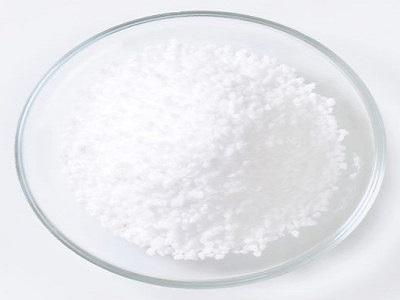Potassium Chloride Prices, a crucial component in agricultural and industrial sectors, has experienced notable fluctuations in its market prices. The primary driver for these price changes is the demand-supply dynamics, which are significantly influenced by agricultural requirements, production capacities, and geopolitical factors. Potassium chloride is predominantly used as a fertilizer, making its demand highly sensitive to the agricultural cycle. Farmers across the globe rely on this compound to improve crop yields, making it indispensable during planting seasons. Consequently, any increase in agricultural activities leads to a surge in demand, thus driving up the prices.
In recent years, global supply chains have been disrupted due to various factors including the COVID-19 pandemic and geopolitical tensions. These disruptions have caused significant delays and increased transportation costs, contributing to the rise in potassium chloride prices. Additionally, the production of potassium chloride is concentrated in a few countries, such as Canada, Russia, and Belarus. Political instability or economic sanctions in these regions can severely impact the global supply, further exacerbating price volatility. For instance, sanctions on Belarus, a major supplier, have led to a decrease in global supply, pushing prices higher.
Technological advancements and changes in production methods also play a critical role in determining potassium chloride prices. Innovations in extraction and processing can lower production costs, potentially reducing market prices. However, the initial investment in new technologies can be substantial, which might lead to short-term price increases until the cost benefits of these technologies are realized. Additionally, environmental regulations have become stricter, compelling producers to adopt cleaner and more sustainable practices. While this shift is beneficial in the long run, it can lead to increased production costs and consequently higher prices in the short term.
Get Real Time Prices of Potassium Chloride: https://www.chemanalyst.com/Pricing-data/potassium-chloride-1161
Market speculation and futures trading also contribute to the volatility in potassium chloride prices. Traders and investors often base their decisions on forecasts and market trends, which can lead to price fluctuations. For example, anticipated shortages or surpluses can cause speculative buying or selling, respectively, thereby influencing the current market prices. Moreover, the interconnectedness of global markets means that economic changes in one part of the world can have ripple effects on the prices of commodities like potassium chloride.
Currency exchange rates are another factor impacting potassium chloride prices. As this commodity is traded internationally, fluctuations in the value of major currencies can affect pricing. A stronger currency in a producing country can make exports more expensive for importing nations, thereby increasing the global price of potassium chloride. Conversely, a weaker currency can make exports cheaper, potentially reducing prices. The interplay of these economic factors makes predicting potassium chloride prices complex and dynamic.
Environmental factors and climate change also influence the demand and supply of potassium chloride. Extreme weather conditions, such as droughts or floods, can affect crop yields and thereby alter the demand for fertilizers. For instance, a severe drought can lead to reduced agricultural output, decreasing the need for fertilizers and causing prices to drop. Conversely, favorable weather conditions that boost agricultural productivity can increase the demand for potassium chloride, pushing prices upward.
Government policies and subsidies related to agriculture and fertilizers also have a significant impact on potassium chloride prices. Subsidies can lower the cost for farmers, thereby increasing demand. Conversely, the removal of subsidies can lead to a decrease in demand as farmers look for cheaper alternatives. Trade policies, including tariffs and import/export restrictions, also play a crucial role. High tariffs on imports can raise domestic prices, while export restrictions in producing countries can limit global supply, driving up international prices.
The energy sector's influence on potassium chloride prices is another critical consideration. The production and transportation of potassium chloride require substantial energy, primarily from fossil fuels. Therefore, fluctuations in energy prices can directly impact production costs. An increase in oil prices, for example, can lead to higher transportation costs, which in turn can elevate the final price of potassium chloride. Conversely, a decrease in energy prices can reduce production and transportation costs, potentially lowering market prices.
Sustainability and environmental concerns are increasingly shaping the potassium chloride market. With growing awareness about environmental degradation, there is a push towards more sustainable agricultural practices. This includes the use of organic fertilizers and more efficient application methods, which can impact the demand for potassium chloride. While this shift is gradual, it has the potential to alter long-term demand patterns and consequently affect prices.
In summary, potassium chloride prices are influenced by a myriad of factors including agricultural demand, production technologies, geopolitical events, market speculation, currency exchange rates, environmental conditions, government policies, and energy prices. The interplay of these elements creates a complex and dynamic market environment. Understanding these factors is crucial for stakeholders in the agricultural and industrial sectors to navigate the challenges and opportunities presented by the fluctuations in potassium chloride prices.
Get Real Time Prices of Potassium Chloride: https://www.chemanalyst.com/Pricing-data/potassium-chloride-1161
Contact Us:
ChemAnalyst
GmbH - S-01, 2.floor, Subbelrather Straße,
15a Cologne, 50823, Germany
Call: +49-221-6505-8833
Email: sales@chemanalyst.com
Website: https://www.chemanalyst.com
